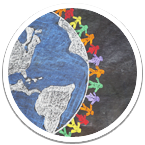Rehabilitation services for immigrants
The rehabilitation services used by people of migrant origin relate to areas such as mental health, treatment of disabilities or finding employment. An adult who has moved to Finland and has a residence permit and assigned municipality of residence in Finland is entitled to receive municipal services and the services provided by the Social Insurance Institution of Finland (Kela).
Immigrants use rehabilitation services less often than the average citizen. There are few international studies on immigrants’ use of and access to rehabilitation, but it has been found that applying for rehabilitation services is problematic for immigrants and that participation in rehabilitation is limited.
The Maamu study found that one in five immigrants of Russian or Kurdish origin felt that they needed rehabilitation. The concept of rehabilitation can be foreign to many immigrants, which contributes to preventing people from applying for the services available.
Working ability remained nearly unchanged despite the COVID-19 pandemic
The COVID-19 pandemic which has lasted for several years had a notable impact on the entire population’s health and welfare. Compared to the general population, the migrant population experienced more challenges that caused their functioning ability to decline, including the following:
- challenges related to memory
- psychological loading
- difficult limitations to functioning ability.
In addition, migrants felt that their quality of life and health good less often than the population in its entirety.
Despite the COVID-19 pandemic and its impacts that caused health to decline, migrants felt that they were nearly just as able to work as the population in its entirety during the COVID-19 pandemic.
The rehabilitation needs of immigrants and the development of services
Finding suitable rehabilitation paths for immigrants may require combining together different services in a creative manner. For example, when planning a rehabilitation path, the package can be tailored to include both integration and rehabilitation services and also various forms of income. Service needs related to finding employment may also be connected with rehabilitation service needs.
Problems related to rehabilitation and employment of immigrants concern especially the provision of rehabilitation services, support for employment and the transition to basic services.
Rehabilitation services can be developed to better meet the needs of immigrants
- by improving professional know-how
- by providing support services for professionals (e.g. interpretation and consultation)
- by providing separate services to immigrants that need them.
Immigrant rehabilitation clients
The specific characteristics of rehabilitation work depend on the clients. For example, the age and language skills of a client with an immigrant background influence the client encounters and their service needs.
Child clients:
- When working together with a child and their family, challenges may arise due to the parents' attitudes towards the care of the child. If the service system and care are foreign to the parents, they may have a negative or suspicious attitude towards the child's care. In such cases, sufficient time must be reserved, as well as an interpreter where necessary, in order to provide direction and guidance to the parents.
- If the child has poor language skills, it may be challenging to recognised linguistic development difficulties.
Youth clients:
- For immigrant youth, their rehabilitation needs may be related to study transition phases during which their studies may be interrupted or, if they have arrived in the country as a teenager, they may not manage to obtain a school leaving certificate for their basic education before the end of their compulsory education.
- A conflict between the expectations of their home and parents and the expectations of Finnish society may generate a need to work on forming their own identity.
Working age clients:
- Challenges such as being away from family or being lonely can cause in young people and working age people undefined adaptation difficulties which manifest themselves as a lack of purpose, general inability to cope, poor mental and physical health, and difficulty in committing to treatment, studies or work.
- The person’s immigrant background must be taken into account in particular if they are of working age but have no education or work experience in Finland, or if the education and work experience obtained elsewhere differs greatly from the requirements of the Finnish education system and Finnish working life. In such cases, the client may find it difficult to assess their capacity to cope and their future prospects.
Elderly clients:
- Elderly clients with an immigrant background are more likely to lack language skills, and women in particular may be illiterate. They may feel that they are outsiders in Finnish society and long for the close family relationships that were broken when they left their home country.
Read more
Immigrants' functional ability (Migration and Cultural Diversity -website, THL)
Immigrants' health and wellbeing (Migration and Cultural Diversity -website, THL)
Cultural competence and cultural sensitivity (Migration and Cultural Diversity -website, THL)




